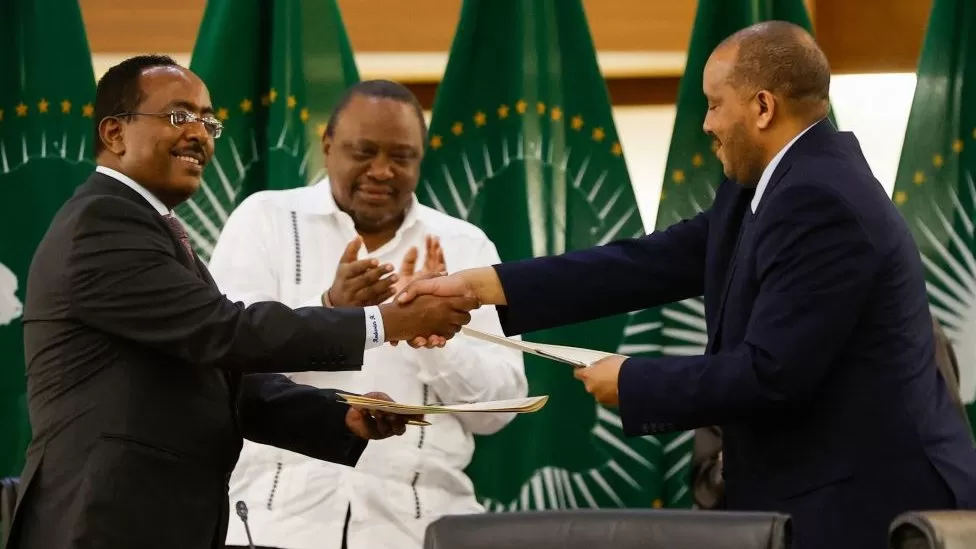
A surprise deal has been reached in the Ethiopian civil war with both sides agreeing to halt their two-year conflict which led to thousands of deaths and warnings of a famine.
The African Union (AU) has called it a new “dawn”, AFP news agency says.
The agreement between the Ethiopian government and Tigrayan forces should allow aid deliveries to resume.
Almost 90% of people in the northern Tigray region need food aid, the World Health Organization says.
About a third of the region’s children are suffering from malnutrition.
Although it’s a major breakthrough, it’ll be received with some degree of caution.
This is not the first ceasefire in the conflict – a previous one was breached in August, just months after both sides committed to it.
This time though, the agreements have gone further. The Ethiopian government officials and representatives of the Tigray People’s Liberation Front (TPLF) have signed up to a disarmament plan and the restoration of crucial services, including aid supplies.
“Ethiopia has only one national defence force,” reads the joint statement. The TPLF has made a major concession – to disarm, demobilize and reintegrate fighters into the federal army.
Prime Minister Abiy Ahmed has described the agreement as “monumental” and committed to implementing it.
Former Nigerian President Olusegun Obasanjo, who mediated the deal agreed after a week of talks in South Africa, said it was just the beginning of the peace process.
UN Secretary-General Antonio Guterres said it was “a welcome first step, which we hope can start to bring some solace to the millions of Ethiopian civilians that have really suffered during this conflict”.
Tigray has been cut off from the outside world for most of the past two years – hospitals have been running out of drugs, while electricity, phone and banking services have been cut, along with the internet.
Both sides have been accused of atrocities, include ethnic cleansing and sexual violence.
Some of the worst abuses have been blamed on Eritrean troops fighting alongside government forces and some have noted with caution that Eritrea was not represented at the talks.
The war began almost two years ago to the day – 4 November 2020 – when forces loyal to the TPLF, the party in power in Tigray, seized a military barracks, prompting the Ethiopian army to seize the region, before later being pushed out of most of it.
This followed a breakdown in relations between the government and the TPLF, which had dominated the whole of Ethiopia for two decades until Prime Minister Abiy Ahmed came to power in 2018.





















